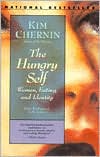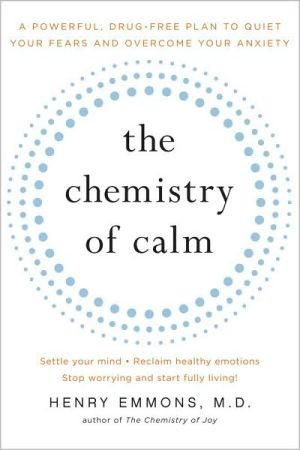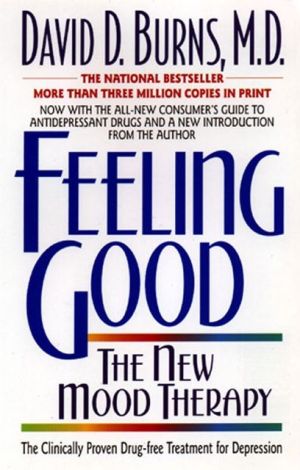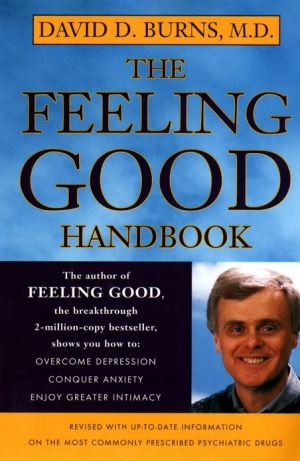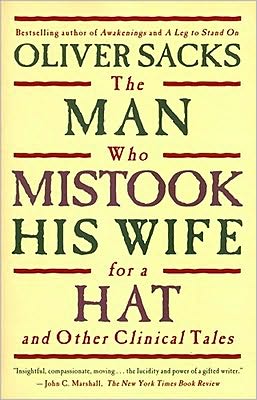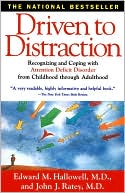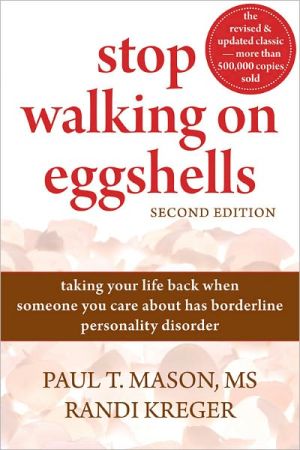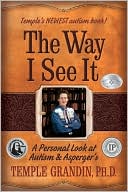Hungry Self: Women, Eating and Identity
Answers the need for help among the five million American women who suffer from eating disorders. "An inspired psychoanalytic meditation on contemporary female identity and eating disorders."—Phyllis Chesler\ \ \ Answers the need for help among the five million American women who suffer from eating disorders.\
Search in google:
Answers the need for help among the five million American women who suffer from eating disorders. "An inspired psychoanalytic meditation on contemporary female identity and eating disorders."—Phyllis Chesler San Francisco Chronicle - Robin Lakoff Kim Chernin offers a perspective that is refreshingly different. Her identification of the roots of eating disorders in women's roles is a positive step, and her solution far more joyous and rational than any other I've seen.
\ When I first began to write seriously, in my early twenties, I used to think writing was for lofty topics, not for humble intimacies about food. I had always planned to write (someday) a visionary book about the transformation of women, a grand scheme complete with steps and stages, calls and awakenings. It used to puzzle me that my obsession with food became my first public statement. Then, having written one book about this uncomfortable topic (The Obsession, 1981), it puzzled me even more when I found myself writing another.\ I started The Hungry Self in 1984. By then, I had begun to work as a consultant to women with eating disorders. This too was puzzling, for I had not yet gone back to graduate school for a degree in psychology. I was a woman who had suffered and thought, written and spoken. When other women called, when they wanted to come talk with me, I was at pains to clarify who I was (only a writer) and was not (not yet a therapist). It always made me smile secretly when professional or academic reviewers of my books on some occasions seemed to think I should have written more scholarly, more researched works, when my intention had been all along to write about a woman suffering and thinking about her experience. I knew there was a place for books by unaffiliated, reflective women speaking to others like themselves. Because I hadn't planned to make myself an expert, I was genuinely surprised when the success of The Obsession allowed me to have weighty opinions about other women's lives. If indeed I deserved to hold these opinions, it was not because of my academic and professional qualifications, and that was the point. I hadcome to my opinions by virtue of studying my own life. Therefore, what I was capable of accomplishing others could accomplish too. That is how I reasoned. Others, meaning other women, people like myself who had not (necessarily) gained their self-knowledge through an advanced degree. It was for them my book had been written.\ By the time I came to write The Hungry Self, however, I was no longer, even in my own eyes, an upstart analyst of our culture's troubled relation to women. By then I had spoken in depth for many hours to other women, had begun to learn from them as they came, session by session, to explore with me the deep underground of a distress so intimate it had frequently not been confided to therapists and analysts, even after years of therapeutic work. As the women with whom I was working went deeper into their dilemma, I too began to move into a deeper understanding of my own, so that in time the entire question of women and food began to show itself to me in a new light and I began to think of an eating disorder as holding the key to unfathomed mysteries of female existence.\ This view finally made sense out of the stubborn tenacity of eating disorders and obsessions: the way they can suddenly disappear one day, giving an illusion of resolution, only to pop up again a few months later, or at the next crucial turning point in a woman's life. The women with whom I was working seemed always to need yet greater understanding, to go further in an exploration of symptoms and sufferings, as if there were a story trying to emerge, which had almost been grasped, yet was still somehow eluding us, so more tough work was required as we were being pushed beyond what we knew.\ The Hungry Self was written out of this hunger for meaning. When it was published in 1985, no one was surprised at the media interest in the book. The news stories about the numbers of women of all ages who suffered from anorexia and bulimia were now common. I was prepared to go on the road once again with my message. But this time, I was taken by surprise by the absence in the radio and television media of that feminist sisterhood that had welcomed The Obsession. None of the women I had spoken to only a few years earlier were still at their jobs. Frequently, I was interviewed by men who seemed to have no idea why my ideas were being taken seriously, if they were being taken seriously, which they seemed to doubt. I felt a hostility I had not felt before, a dismissive lack of credible interest. Most interviewers had not bothered to read my book, and among those who had read it, there was a kind of stubborn refusal, I thought, to consider the deep issues it raised.\ Often, I had the impression media people were less prepared than several years before to take the suffering of an eating disorder seriously. Just beneath the surface of many conversations, I heard, or seemed to hear, the scornful insistence, "Come on, you can't be serious. Women going on a diet are feeling guilt about their mothers?"\ It isn't easy to talk about serious ideas in the television format, where one is expected to show up, say a few glib words, and move on to the next show. This is especially difficult when you have been given the opportunity to reach millions of women who might not otherwise come across the ideas you've been mulling over with yourself. I was reluctant to produce formulaic replies (we did not yet speak of sound bites). I wanted my message to arise spontaneously from the moment in which it was asked, so that the spontaneity might carry it straight into the heart of a woman in distress. I wanted to reach people.\ I was flying all over the country, doing the talk show circuit, speaking in bookstores, arriving for hurried conversations at radio stations, fretting about the fact that over the years there seemed to be a diminishing popular understanding of eating disorders, while at the same time an entire field of professional inquiry, research, publication, and treatment had grown up.\ In retrospect, it is evident that this retreat from understanding was already a backlash, a retreat from meaning, a refusal to understand. Even the point I had made several years earlier, that an eating disorder could be seen as a reflection of a culture's troubled relationship to its women, seemed to have lost ground. With The Hungry Self, I argued that this trouble could have penetrated so deeply into the female psyche that it had caused women to experience what amounted to a generational breakdown.\ While on the road, I began to get the impression I had been invited to most interviews because someone imagined I was going to speak about diets. Several times I was paired with women from weight-loss organizations, who themselves seemed puzzled by my tendency to bring up philosophical and analytic questions about female hunger. Often, during the commercial break, members of the show's staff rushed up to whisper that I should leave out the philosophy, get down to business. At times, I had to stop the host from overtly dismissing what I had to say, as he turned back to the concrete questions of losing weight.\ This tension, between the interviewers and me, did not keep a considerable rapport from growing between me and the members of the audience, most of whom were women. That was when I experienced directly, for myself, how thoroughly most forms of mass media, including book publishing, underestimate the intelligence of women, our need to understand in depth, with subtlety and complexity, our troubled relationship to our culture. I had made this argument from the time I had first attempted to publish The Obsession, when I was told by several publishers that it was "too intelligent for women." I had made it again in an attempt to persuade my publishers to get enough books into the stores to meet what I suspected would be the demand for them. I had to make it again now in every television studio across the country. Left to themselves, the women in the audience had no trouble with my "philosophizing." During station breaks the conversation between us would continue, growing more serious and urgent than the talk show host could allow. The countdown would begin, the inevitable signal that the show was going back on the air, the host would get the topic back to the appropriate level of triviality, I would refuse to engage in it at that level, the tension would become perceptible and finally, about midway through my tour, I lost patience. While we were on the air I told the host he had not read my book, didn't seem to grasp what I was talking about, and that in his comments about women and weight he had insulted the women in the audience. Unruffled by my challenge, he turned with a cavalier gesture to the audience. Did they feel insulted? Their response clearly took him by surprise. "Yes," the women cried out. "Yes," they felt insulted, indeed he was not listening to me; they had come to hear me speak about mothers and daughters and women's struggle for identity, and he was not letting me get to the point.\ It is dangerous to underestimate the intelligence of women. Large numbers of women we consider uneducated, not well read, whom we think of as simple people, homemakers or merely mothers, reveal an inherent capacity for analytical and cultural understanding when it comes to the suffering of their daughters or nieces, or their own often silenced conflicts. I myself have had to learn this all over again so many times during initial telephone conversations, in first sessions, during ongoing analytic work, when women are invited to piece together the meaning of their sufferings.\ Hungry Self. Copyright © by Kim Chernin. Reprinted by permission of HarperCollins Publishers, Inc. All rights reserved. Available now wherever books are sold.
\ Robin LakoffKim Chernin offers a perspective that is refreshingly different. Her identification of the roots of eating disorders in women's roles is a positive step, and her solution far more joyous and rational than any other I've seen.\ —San Francisco Chronicle\ \
